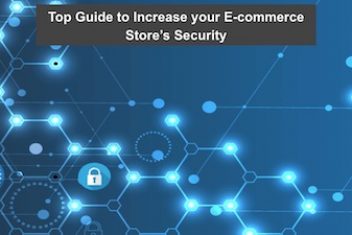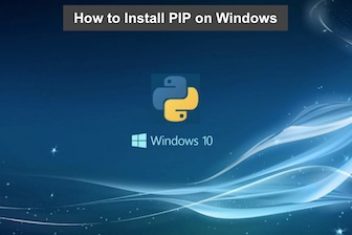While we have been observing the digitalization of numerous aspects of our lives for some time, the coronavirus pandemic has significantly accelerated the process. Initially, when we all thought it would be temporary (and brief), we simply went into survival mode. With time, though, many people have decided to adapt to the new reality and develop solutions that might benefit them in the future.
A digital marketing company, public relations agency, or a consultancy firm, to name just a few business types, have all started investing in improving the remote work model, which is here to stay; similarly, event organizers, planners, and managers have recognized the advantages of hosting events online, as it might significantly increase the number and variety of attendees. However, organizing and managing a successful virtual event is not a walk in the park — even if you are an experienced event coordinator.
From starting with clear goals, defining your target audience, and choosing the perfect time to carefully picking the hosting platform, developing a marketing strategy, engaging your audience, and preparing for crises — below, you will find valuable tips for hosting a memorable and outstanding virtual event.
Read: Three Pieces of Advice for Revamping Your Virtual Meetings
Set Clear Goals
If you are going to invest your time, efforts, and resources into hosting an online event, make sure you have a clear picture of the results you are trying to achieve. What impact do you want to leave on your audience? What knowledge/information do you want them to acquire? Do you want them to build a particular skill base or positive relationship with other participants?
Read: 8 Tips For Making Webinars More Attractive And Engaging
Furthermore, consider what experience you want them to get. For example, is your virtual event meant to be educational, promotional, social, or fun? Would you like to encourage the cross-pollination of ideas between participants? Will it be one-way (you provide knowledge and information) or two-way (you build relationships, trust, and community)?
Clear goals will help you determine what kind of platform you should use for your event, how you should market it, and what experience you want participants to have.
Define Your Target Audience
The next thing you need to do is establish who your event’s main target is. Get to know your audience and their demographics — age, gender, location, social background, interests, needs, goals, preferences, etc. If you can, try to understand their mindset. These insights will significantly help you shape your event, choose the proper communication channels, and enable you to tailor your content and messages.
Read: 6 Steps to Organize a Webinar People Will Talk About
For example, suppose you are hosting an educational event. In that case, you can segment the audience according to their familiarity with the subject or level of involvement and address different topics to different groups. If your event aims to reach managers, feel free to use more business jargon, offer them specific concrete advice, and correspondingly adjust the content, delivery, language, and attitude.
Choose the Right Time
The time of the year and day of the week can greatly impact site traffic and attendance. For example, you might need to adjust the timing of your event if you are targeting people from different time zones.
The time of day can also influence your event’s experience, engagement, and impact. Hosting an online event on a weekday morning might not be the best idea if you target working professionals.
Additionally, try to avoid competing with other major events — both online and in-person. If you are planning your virtual event during a major trade show or a conference related to your industry, the chances are that there will be fewer attendees. Plus, it might be harder for you to get the attention of the media and influencers.
Pick a Suitable Hosting Platform
Virtual events are usually more technically demanding than their live brethren. As such, you should ensure that the tool you use can deliver the results you wish for.
Before you pick your platform, think about the event format, the number of attendees, and the session length. For example, if you expect a lot of sessions with multiple videos and live or pre-recorded presentations, video chat might not be sufficient.
Read: 6 Revolutionary Digital Marketing Trends in 2022
If you want to invite experts from multiple countries or time zones, make sure that your platform has such capability. Similarly, if you want to include a quick question-and-answer section after every session, check whether your platform supports it.
Furthermore, when choosing your platform, consider the level of control over it that you would like to have: will you have a dedicated administrator to oversee the entire event? Will you have to do it all by yourself? How much support can you get from the platform provider? Can they help you with marketing your event?
Develop an Engaging Marketing Strategy
What should you do to ensure that your virtual event doesn’t go unnoticed? Think about the channels you would like to use, and then develop your marketing plan accordingly!
Use different media channels (online, social media, blogs, email newsletters, press releases, etc.) to raise awareness of your event. If you can, try to reach out to influencers in advance (e.g., relevant industry thought-leaders, local and national media outlets, bloggers).
Ensure that your effort doesn’t stop once the event kicks off — update your followers about different news, recommend how they can find sessions that match their interests, provide them with additional information about your speakers or sponsors, etc.
Read: Creative Marketing Ideas to Attract Customers
Create an Agenda
Whether planning a multi-day or a one-day event, the agenda is paramount. An online event without a plan is just like a ship without a sail: no direction and little impact.
Creating a schedule might seem simple and straightforward, but it actually needs to be carefully thought through. It needs to fit your goals and target audience and contain a variety of sessions and topics, with each aiming at teaching a specific skill. It would be best if it also solved a specific problem or addressed a burning issue. For example, you could go for a mix of general sessions, practical workshops, and creative discussions between participants.
The sessions should alternate between group activities (using comments and Q&A), individual activities (through videos, presentations), and communication with the organizers (for example, guest speakers, experts). It is highly recommended to try out the agenda with a couple of pilot sessions before officially announcing the virtual event.
Prepare for Crises
A virtual event is not immune to crises. Many things can go wrong with an event — whether it be technical issues or human mistakes. So, make sure that you have a plan for responding to major and minor issues, such as unexpected changes in the schedule and uncooperative attendees.
For example, if your host crashes, you may lose all the data and end up dealing with irate attendees. In that case, you might want to pick a hosting solution that comes with failover or a backup server.
Read: 4 Easy But Clever Ways To Market Your Business This 2022
The Bottom Line
If you are organizing a virtual event, make sure that you aim to achieve results beyond just having good speakers and sessions. Your event should educate, inspire and move your audience, guide them towards certain actions, or form a positive relationship with your brand or company.
While less costly and more convenient than live events, an online event has its own set of challenges — it is usually more technically demanding and needs more planning to ensure the experience is as engaging and meaningful for the audience as it should be. However, you will see that it’s worth the effort once it’s all over.
If you like the content, we would appreciate your support by buying us a coffee. Thank you so much for your visit and support.



